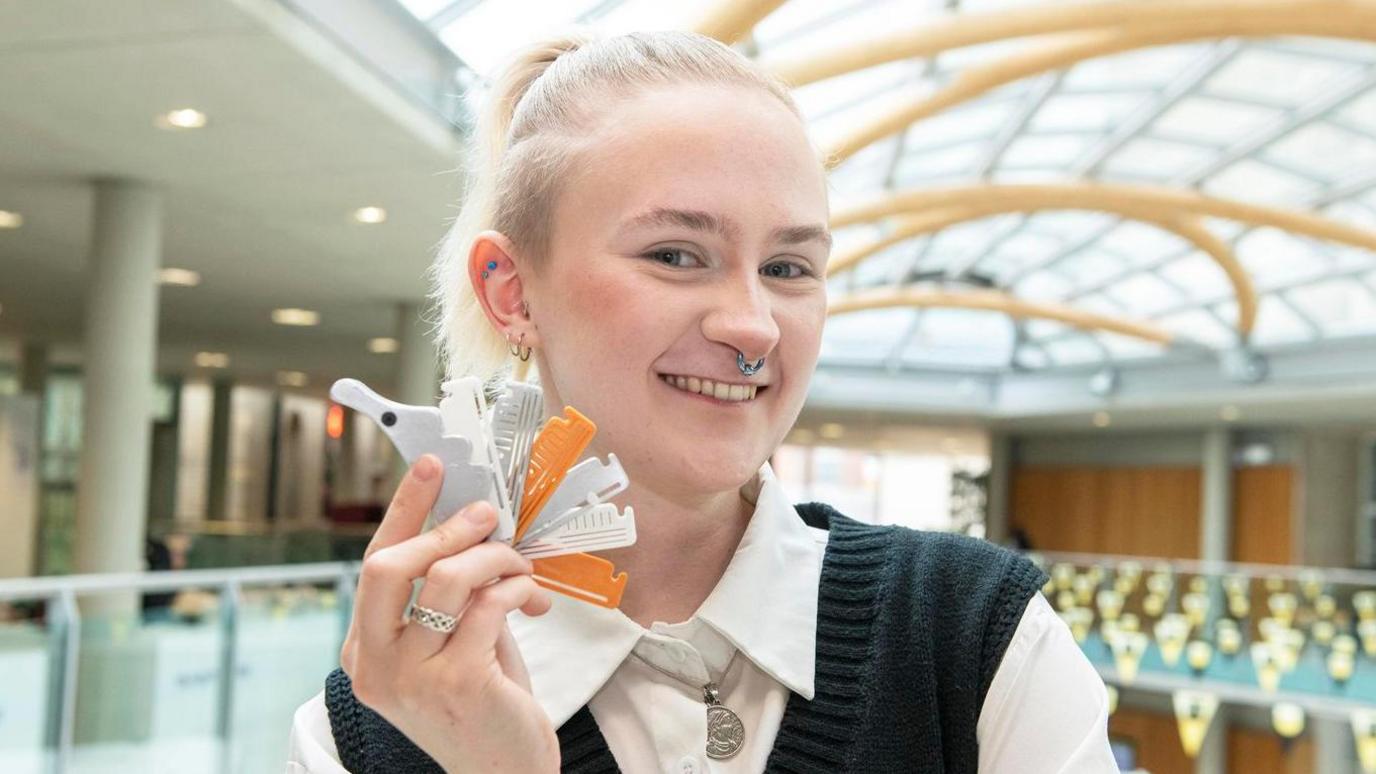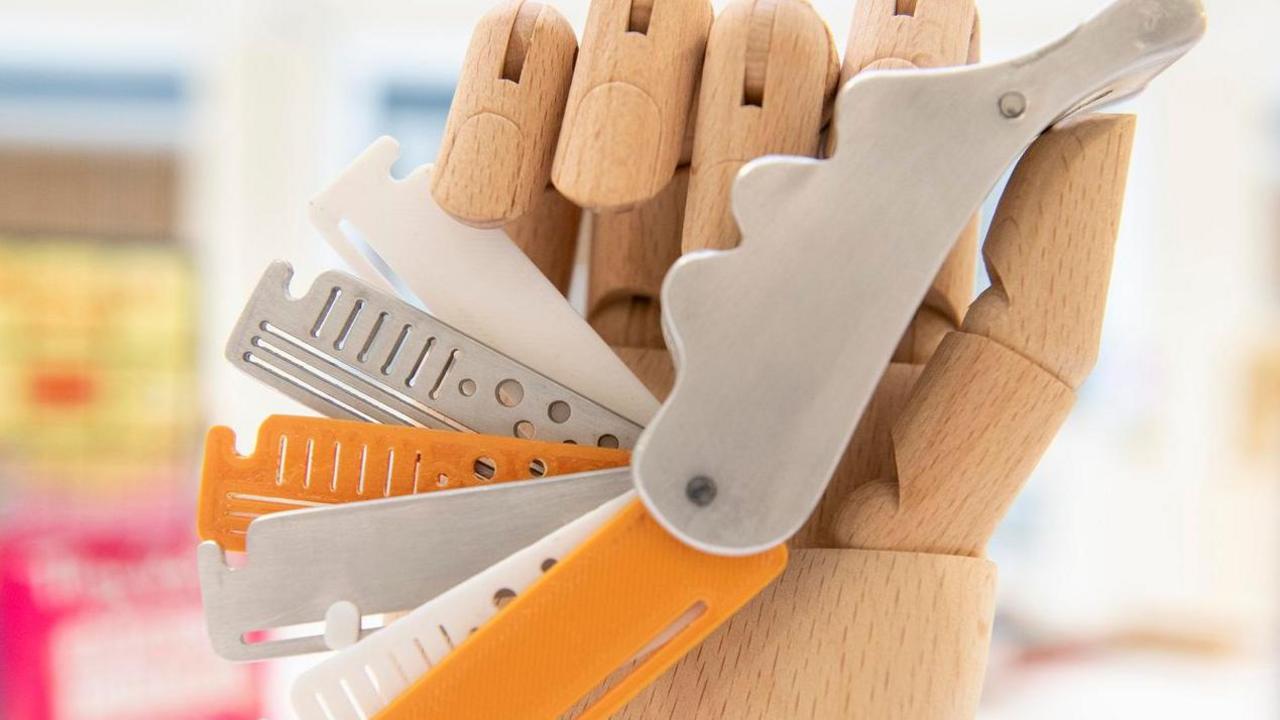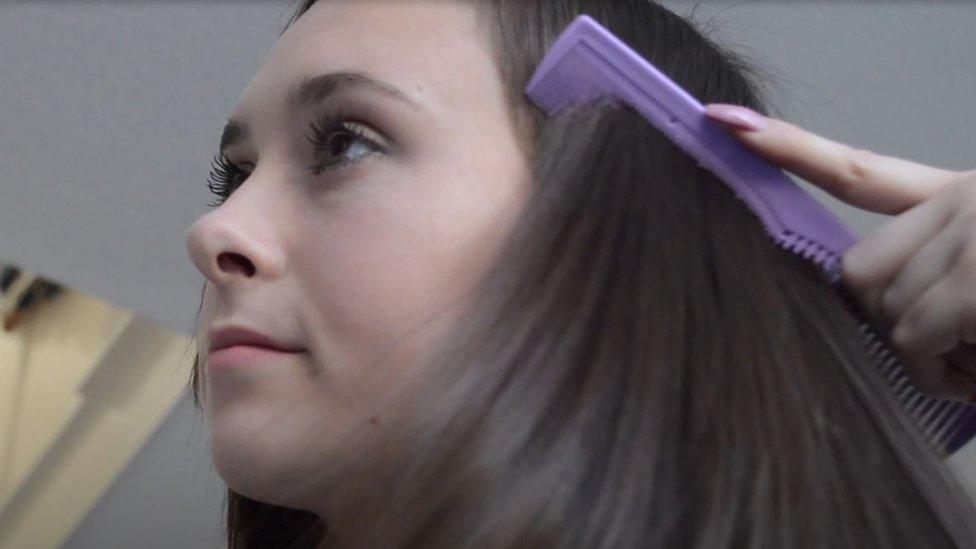Student's device to help compulsive hair pullers

Eve Tollett said she used to rip chunks of her own hair out when she was a child
- Published
A Nottingham student has invented a device to help people with a compulsive disorder that makes them pull out their own hair.
Eve Tollett has designed a pocket-sized product to try to distract people with trichotillomania from plucking their hair.
The 22-year-old Nottingham Trent University (NTU) student has had the condition herself since she was a child.
"When I was younger I used to rip my hair out in chunks," she said.

Ms Tollett was inspired by the design of Swiss army knives
"Now I just find myself twiddling with my hair more than anything, but then occasionally notice a small pile of hair next to me on the floor," she said.
Ms Tollett said her device aimed to provide people a distraction for a person's hands and brain so they did not pull their hair.
She said she believed the device could also help those who compulsively bit their nails and lips.
It has a series of interchangeable tiles, made of wood, plastic and metal, which the user chooses to his or her tactile preferences, and can be flicked out like a Swiss army knife.

Trichotillomania, also known as trich or TTM, is when someone cannot resist the urge to pull out their hair, NHS England says, external.
They may pull out the hair on their head or in other places, such as their eyebrows or eyelashes, genital area, beard or moustache.
Trich usually starts between the ages of 10 and 13 years old.
TTM is believed to be caused by stress and anxiety, chemical imbalance in the brain, and hormone changes during puberty.

Ms Tollett, who studies BA Product Design at NTU's school of architecture, design and the built environment, added: "Trichotillomania is such a niche and under-researched topic.
"A lot of the behaviours relate to stress, anxiety and nerves, so I thought it would be useful to develop a self-soothing tool which people can tailor to their needs.
"Because of the stigma against compulsive behaviours, I wanted the tool to look like anything but a general fidget toy to avoid people feeling self-conscious."
Ms Tollett, from Rodley, West Yorkshire, spoke to 100 people with conditions like trichotillomania while researching her design, which she said could sell for up to £30 on the market.
James Dale, head of product design at NTU, said: "Eve has taken her personal insight into a little known about condition and used it to create a product which has the potential to help many others.
"Her prototype proves how this product would work in reality and help people manage a variety of behaviours in a discreet and personal way."
Follow BBC Nottingham on Facebook, external, on X, external, or on Instagram, external. Send your story ideas to eastmidsnews@bbc.co.uk, external or via WhatsApp, external on 0808 100 2210.
Related topics
- Attribution
- Published5 June 2023

- Published28 January 2018

- Attribution
- Published17 December 2018
